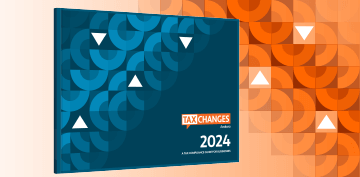Cuomo proposes internet fairness tax on online sales into New York
The 2019 Executive Budget proposal introduced last week by New York Governor Andrew Cuomo would require online marketplace providers to collect tax when they facilitate third-party sales to New York residents, even when the seller lacks a physical presence in New York. It would also impose reporting requirements on non-collecting sellers.
Although many of the largest internet sellers collect New York tax on their own sales, many small sellers do not. And large marketplace sellers such as Amazon are only required to collect tax on sales of their own products, not on third-party (marketplace) sales. As a result, states are collectively missing out on billions in sales tax revenue annually; the U.S. Government Accountability Office estimates they lost more than $13 billion in 2017 alone.
Tax on marketplace sales
To obtain more of that revenue, New York is taking a cue from Washington state, whose 2017 marketplace fairness law inspired Amazon and Etsy to collect and remit tax on their marketplace sales. Gov. Cuomo’s Internet Fairness Conformity Tax requires marketplace facilitators to collect New York tax on marketplace sales of tangible personal property (TPP), file returns, and remit tax to the state.
There are some key differences between the two states’ proposals. For example, Washington’s law applies to marketplace facilitators with a physical presence in Washington or $10,000 or more in annual retail sales sourced to Washington (including sales of their own products and sales of products made on behalf of marketplace sellers). New York’s budget proposal contains no such provision. However, it does target only the largest internet sellers, excluding “a person who facilitates sales exclusively by means of the internet” who facilitated less than $100 million of sales annually for every calendar year after 2016.
Use tax notice and reporting requirements
Like Washington, New York would impose certain reporting requirements on non-collecting sellers and marketplace providers. Under these, a non-collecting seller must:
- Prominently display on all order forms, sales receipts, etc., a notice that New York state and local sales and use tax is not being collected or remitted upon the transaction, and that the purchaser may be required to remit such tax directly to the commissioner
- File with the tax commissioner by Jan. 31 of each year (starting in 2019) an annual information report that includes the total of the non-collecting seller’s receipts from purchases of TPP delivered to New York for the prior calendar year
- File an annual statement of TPP purchases to each New York purchaser by Jan. 31 of each year (starting in 2019), explaining:
- Sales or use tax wasn’t collected on purchaser’s purchases in the prior calendar year, and the purchaser may be required to remit it directly to the commissioner
- A list of the purchaser’s purchases delivered into New York, along with the date of the transaction
- A general description of each item and the amount paid for it, including any shipping or delivery costs
- Instructions for obtaining additional information
- A statement that the purchaser may be required to annually report the aggregate dollar value of the purchases
Unlike Washington, New York’s law does not require marketplace facilitators to submit annual reports of their purchasers’ purchase activity to the tax commissioner. However, they must keep records of these and, upon request, share with the tax commissioner each New York purchaser’s name, last known address, and the total receipts from their purchases. In addition, a non-collecting marketplace provider could be asked to provide the name and address of each of its marketplace sellers, along with the aggregate amount of sales each delivered to a location in New York.
Failure to comply with the proposed requirements would result in significant penalties.
A similar proposal introduced in New York at this time last year failed to gain the needed support. It will be interesting to see what happens this time around, now that Amazon and Etsy are complying with Washington’s marketplace fairness law. If enacted as written, New York’s internet fairness conformity tax would apply to sales made on or after Sept. 1, 2018.
Supreme Court to reconsider Quill
The physical presence requirement that’s inspired New York, Washington, and many other states to seek creative ways to tax remote sales was upheld by the Supreme Court of the United States in Quill Corp. v. North Dakota, 504 U.S. 298 (1992).
On Jan. 12, 2018, the court agreed to consider a case, South Dakota v. Wayfair, Inc., that challenges Quill. The decision, expected in late June, could dramatically alter how states can tax sales by out-of-state sellers. In the meantime, the court’s decision to take the case could rouse more states to enact remote sales tax legislation.
Businesses that currently don’t collect in all states where they sell should prepare for any eventuality and consider what sales and use tax compliance would look like in those states. Tax automation software can greatly facilitate end-to-end sales and use tax compliance in all jurisdictions. Learn more.

Avalara Tax Changes 2024: Get your copy now
Stay ahead of 2024’s biggest tax changes with this comprehensive, compelling report covering seven industries.
Stay up to date
Sign up for our free newsletter and stay up to date with the latest tax news.












